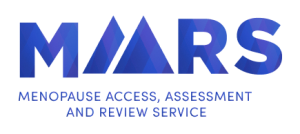The Women’s Health Strategy for England aims to improve health outcomes for women by addressing gaps in inequity and inequality to ensure women have access to the right care at the right time. One of its core objectives is to reduce variations in services, and build the capacity and capability of healthcare professionals, including pharmacists, to support access and education.
A particular area of focus within the strategy is menopause care. The strategy highlights the need for better education, awareness, and clinical resources to support the inconsistencies and gaps in service provision and knowledge of menopause.
The Women’s Health Strategy for England aims to improve health outcomes for women by addressing gaps in inequity and inequality to ensure women have access to the right care at the right time. One of its core objectives is to reduce variations in services, and build the capacity and capability of healthcare professionals, including pharmacists, to support access and education.
A particular area of focus within the strategy is menopause care. The strategy highlights the need for better education, awareness, and clinical resources to support the inconsistencies and gaps in service provision and knowledge of menopause.
In line with this ambition, Besins Healthcare UK have developed a comprehensive menopause toolkit, MAARS. MAARS has been specifically designed to support Pharmacists and other clinicians in establishing, developing and implementing a comprehensive menopause services that meet the needs of women in their local health and care system. The toolkit enables support Pharmacists and other clinicians working alongside GPs to support access to menopause services but also directly aligns with the NHS’s broader goals of reducing variability and inequity in care while enhancing patient outcome.
The service specification guide supports healthcare professionals in designing and implementing menopause clinics and services. This section provides a clear, concise, evidence-based framework adaptable to individual organisations, promoting consistency in care delivery across the NHS.
The clinic guide offers a practical overview of the key stages of menopause management, providing recommendations and guidance based on best practice. This section provides a consistent approach to high-quality patient care, acting as a prompt for specific questions during consultations.
The clinic efficiency guide provides practical guidance to optimise clinic efficiency while creating a menopause-friendly environment and engaging with patients to improve outcomes. This section offers practical advice on optimising clinics and resources within primary care, including considerations and case studies for running clinics.
The referral guide supports healthcare professionals in identifying key ‘red flags’ and making appropriate referrals. This section provides flowcharts and guidance on key information required for referrals, ensuring specialists have relevant information at the time of consultation.
The patient information booklet provides essential information and practical advice to women going through menopause in easy-to-understand language. This section outlines the key stages of menopause, symptoms, management, and treatment options, along with lifestyle tips in patient friendly language.
The patient questionnaire is a valuable resource for evaluating and reviewing menopause patients effectively. This section captures key information to support diagnosis and symptom monitoring, optimising appointment time.
The overview guide provides a comprehensive guide to all sections within the toolkit, highlighting their purpose and value to the NHS, healthcare professionals (HCPs), and patients. This section allows quick reference and context for each section of the toolkit in one document.
Key Challenges for the NHS and Patients Currently
Variation in provision of existing NHS ,menopause services and equity of access to these implementation of the women’s health strategy.
Challenges in accessing information and education on the menopause.
Upskilling of the healthcare professionals to educate on menopause and consideration management and treatmentoptimisation.
Solution: Menopause Acces, Assessment and Review Service(MAARS)
The MAARS toolkit seeks to support Primary Care HCPs such as pharmacists in taking responsibility to set up and deliver the menopause services.
Provision of a comprehensive toolkit, case studies, and non-clinical training will provide a framework for the service leads to establish a consistent approach to support service set up.
Value to the NHS
Having a framework for set up and delivery will allow General Practice to review their current practice and guidelines to develop their service using skills and competencies of the practice team members.
Promotes consistency in the design and implementation of menopause clinics across the NHS. By standardising the approach to care delivery, healthcare providers can ensure that patients receive consistent care, regardless of where they seek treatment.
Improve outcomes leading to improvement in overall health and quality of life by increasing access to high-quality menopause care and education thereby empowering women to make informed decisions ensuring personalised care.
Potentially release GP capacity as well as decrease the overall utilisation of healthcare services due to improvement in symptom control.

